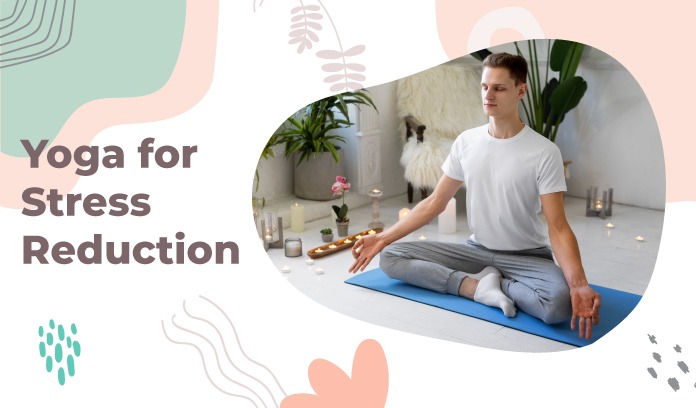In today’s fast-paced world, stress has become a common part of life for many people. Whether it’s due to work, relationships, or other responsibilities, stress can take a toll on both our physical and mental well-being. Fortunately, there’s a natural and effective way to manage stress: yoga. In this blog, we’ll explore how yoga can help reduce stress and promote relaxation, allowing you to live a happier and healthier life.
Mindfulness Meditation
Mindfulness meditation, a key component of yoga, involves focusing attention on the present moment without judgment, which can reduce stress by calming the mind and promoting relaxation.
Deep Breathing
Deep breathing exercises, such as diaphragmatic breathing or ujjayi breath, help activate the body’s relaxation response, reducing stress and promoting a sense of calm and balance.
Restorative Yoga
Restorative yoga incorporates gentle, supported poses and deep relaxation techniques to release tension, soothe the nervous system, and induce a state of deep relaxation, making it effective for stress reduction.
Yoga Nidra
Yoga Nidra, or yogic sleep, is a guided meditation practice that induces deep relaxation and stress reduction by systematically relaxing the body and mind while remaining in a state of awareness.
Gentle Movement
Gentle movement practices, such as slow-flow yoga or gentle hatha yoga, focus on gentle stretching, mindful movement, and breath awareness, helping to alleviate physical tension and mental stress.
Grounding Poses
Grounding poses in yoga, such as Mountain Pose (Tadasana) or Child’s Pose (Balasana), help promote a sense of stability, calmness, and inner peace by connecting the body with the earth and fostering a sense of groundedness.
Mind-Body Connection
Yoga emphasizes the mind-body connection through mindful movement, breath awareness, and meditation, helping individuals become more attuned to their bodies and better able to manage stressors.
Release of Tension
Yoga postures, such as forward folds, twists, and hip openers, help release physical tension stored in the body, promoting relaxation and reducing the physical manifestations of stress.
Stress Hormone Regulation
Yoga practices, including asanas, pranayama, and meditation, have been shown to regulate stress hormones like cortisol and adrenaline, promoting balance in the body’s stress response system.
Cultivation of Inner Peace
Yoga cultivates inner peace and resilience by teaching individuals to observe their thoughts and emotions without attachment, allowing them to respond to stressors with greater clarity and equanimity.
Conclusion
Yoga offers a holistic approach to stress reduction, addressing both the physical and mental aspects of stress. By incorporating yoga into your daily routine, you can cultivate greater resilience, inner peace, and overall well-being. However, it’s essential to consult a medical professional before beginning any new exercise regimen, especially if you have pre-existing health conditions. Start your journey to a stress-free life with yoga today!


